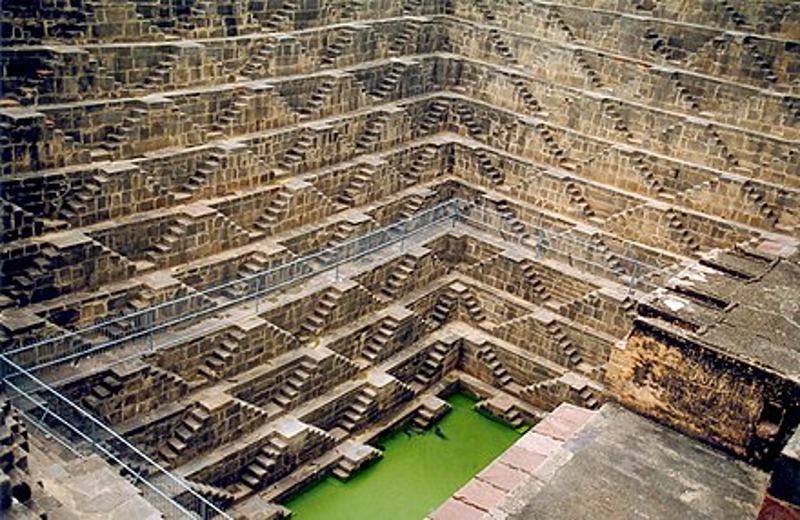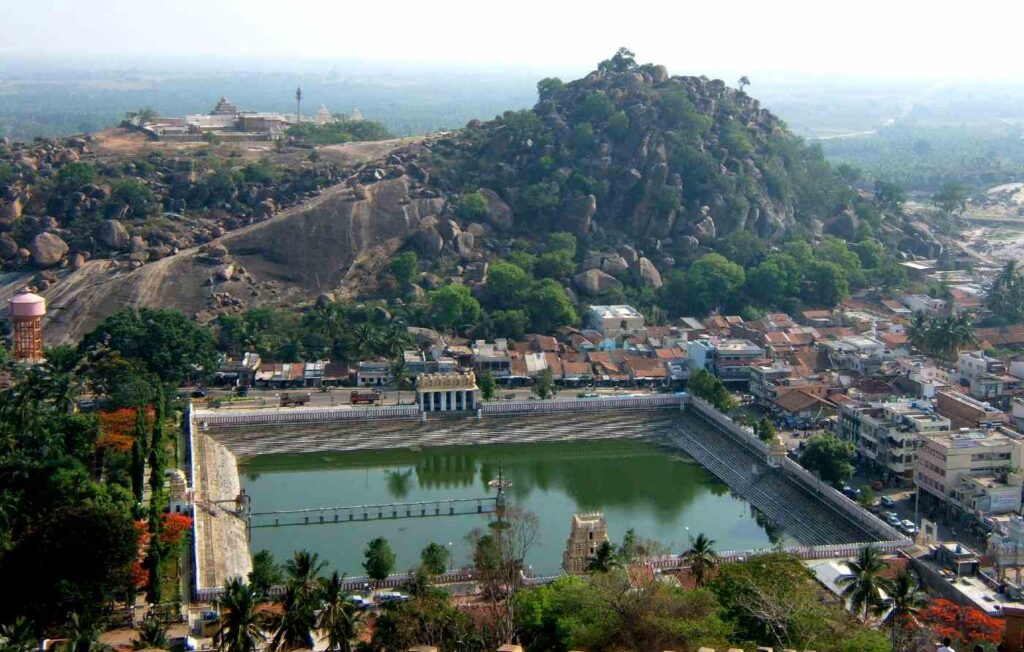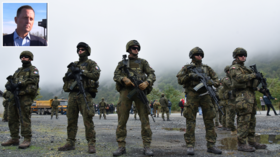
1 of 10
FILE- South African Deputy President F.W. de Klerk, right, and South African President Nelson Mandela pose with their Nobel Peace Prize Gold Medal and Diploma, in Oslo, Dec. 10, 1993. F.W. de Klerk, who oversaw end of South Africa's country’s white minority rule, has died at 85 it was announced Thursday, Nov. 11, 2021. (Jon Eeg/Pool photo via AP, File)
JOHANNESBURG (AP) — F.W. de Klerk, who shared the Nobel Peace Prize with Nelson Mandela and as South Africa’s last apartheid president oversaw the end of the country’s white minority rule, has died at the age of 85.
De Klerk died after a battle against cancer at his home in the Fresnaye area of Cape Town, a spokesman for the F.W. de Klerk Foundation confirmed Thursday.
De Klerk was a controversial figure in South Africa where many blamed him for violence against Black South Africans and anti-apartheid activists during his time in power, while some white South Africans saw his efforts to end apartheid as a betrayal.
“De Klerk’s legacy is a big one. It is also an uneven one, something South Africans are called to reckon with in this moment,” the Mandela Foundation said of his death.
It was de Klerk who in a speech to South Africa’s parliament on Feb. 2, 1990, announced that Mandela would be released from prison after 27 years. The announcement electrified a country that for decades had been scorned and sanctioned by much of the world for its brutal system of racial discrimination known as apartheid.
With South Africa’s isolation deepening and its once-solid economy deteriorating, de Klerk, who had been elected president just five months earlier, also announced in the same speech the lifting of a ban on the African National Congress and other anti-apartheid political groups.
Amid gasps, several members of parliament left the chamber as he spoke.
Nine days later, Mandela walked free.
Four years after that, Mandela was elected the country’s first Black president as Black South Africans voted for the first time.
By then, de Klerk and Mandela had been awarded the Nobel Peace Prize in 1993 for their often-tense cooperation in moving South Africa away from institutionalized racism and toward democracy.
The country would be, de Klerk told the media after his fateful speech, “a new South Africa.” But Mandela’s release was just the beginning of intense political negotiations on the way forward. Power would shift. A new constitution would be written. Ways of life would be upended.
“There is an element of uncertainty, obviously, with regard to everything which lies in the future,” de Klerk calmly told reporters on Feb. 10, 1990, after announcing that Mandela would be released the following day.
The toll of the transition was high. As de Klerk said in his Nobel lecture in December 1993, more than 3,000 died in political violence in South Africa that year alone. As he reminded his Nobel audience, he and fellow laureate Mandela remained political opponents, with strong disagreements. But they would move forward “because there is no other road to peace and prosperity for the people of our country.”
After Mandela became president, de Klerk served as deputy president until 1996, when his party withdrew from the Cabinet. In making history, de Klerk acknowledged that Mandela’s release was the culmination of what his predecessor, former President P.W. Botha, had begun by meeting secretly with Mandela shortly before leaving office. In the late 1980s, as protests inside and outside the country continued, the ruling party had begun making some reforms, getting rid of some apartheid laws.
De Klerk also met secretly with Mandela before his release. He later said of their first meeting that Mandela was taller than expected, and he was impressed by his posture and dignity. De Klerk would say he knew he could “do business with this man.” But not easily. They argued bitterly. Mandela accused de Klerk of allowing the killings of Black South Africans during the political transition. De Klerk said Mandela could be extremely stubborn and unreasonable.
Later in life, after South Africa’s wrenching political transition, de Klerk said there was no longer any animosity between him and Mandela and that they were friends, having visited each other’s homes. De Klerk did not seem to fit easily into the role of a Nobel laureate. He remained a target of anger for some white South Africans who saw his actions as a betrayal. Though he publicly apologized for the pain and humiliation that apartheid caused, he was never cheered and embraced as an icon, as Mandela was.
“Sometimes, Mr. de Klerk does not get the credit that he deserves,” Nobel laureate and former archbishop Desmond Tutu told David Frost in an interview in 2012.
Despite his role in South Africa’s transformation, de Klerk would continue to defend what his National Party decades ago had declared as the goal of apartheid, the separate development of white and Black South Africans. In practice, however, apartheid forced millions of the country’s Black majority into nominally independent “homelands” where poverty was widespread, while the white minority held most of South Africa’s land. Apartheid starved the Black South African education system of resources, criminalized interracial relations, created black slums on the edges of white cities and tore apart families.
De Klerk late in life would acknowledge that “separate but equal failed.”
F.W. de Klerk was born in Johannesburg in 1936. He earned a law degree and practiced law before turning to politics and being elected to parliament. In 1978, he was appointed to the first of a series of ministerial posts, including Internal Affairs. In the late 1970s and 1980s, South Africa faced violent unrest as the government tried modest reforms to cultivate a Black South African middle class and allow limited political power to the country’s other marginalized groups, mixed race people classified as “coloreds” and those of Asian and Indian backgrounds.
The moves only increased bitterness over apartheid, while international pressure for more fundamental changes increased. In February 1989, de Klerk was elected the National Party leader and in his first speech called for “a South Africa free of domination or oppression in whatever form.” He was elected president in September of that year.
After leaving office, de Klerk ran a foundation that promoted his presidential heritage, and he spoke out in concern about white Afrikaaner culture and language as English became dominant among the new South Africa’s 11 official languages. He also criticized South Africa’s current ruling party, the African National Congress, telling the Guardian newspaper in a 2010 interview that the ANC, once the champion for racial equality, “has regressed into dividing South Africa again along the basis of race and class.”
In a speech in Cape Town in early 2016, de Klerk warned that many white South Africans were “oblivious of the plight of less advantaged communities” and that “the attitude of many Blacks toward white South Africans is becoming harsher and more uncompromising.” South Africans once again were seeing people as racial stereotypes instead of human beings, de Klerk said, adding: “We need to hear Nelson Mandela’s call for reconciliation and nation-building again.”
His leadership of the apartheid regime dogged de Klerk throughout his life, even though he helped negotiate its end.
Human rights activists and legal experts pointed to documents that they said showed de Klerk being present at meetings where extrajudicial killings of anti-apartheid leaders were ordered.
His assertion in 2020 that apartheid was not a crime against humanity stirred up a furor in South Africa. When de Klerk attended President Cyril Ramaphosa’s State of the Nation Address in the South African Parliament that year, opposition members shouted at him and demanded that he leave.
“We have a murderer in the House,” declared Julius Malema, firebrand leader of the Economic Freedom Fighters party, denouncing de Klerk as an “apartheid apologist … with blood on his hands.”
Later de Klerk said he accepted that apartheid was a crime against humanity and apologized, but the damage had been done. He was viewed by many in South Africa as the last apartheid ruler, not the leader who helped steer the country away from violent racial oppression.
FW De Klerk died Thursday aged 85 following struggle against mesothelioma cancer
Hassan Isilow |12.11.2021
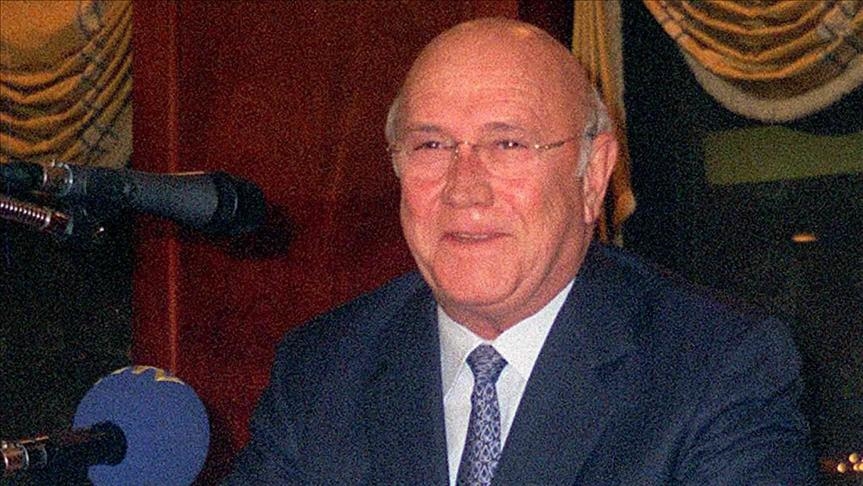
JOHANNESBURG
The death of South Africa’s last apartheid-era President Frederik Willem de Klerk has drawn mixed reactions in the country, with some praising his role in ending apartheid and others accusing him of being responsible for the murders of people during the regime.
De Klerk died early Thursday at his home in Fresnaye in Cape Town following a struggle against mesothelioma cancer, his foundation said in a statement. He was 85.
De Klerk, who served as president from September 1989 to May 1994, is known for playing a key role in dismantling the white oppressive system of apartheid.
In 1990, he announced the release from prison of activist Nelson Mandela, who served 27 years for opposing apartheid.
This led to multiparty elections in 1994 which saw Mandela’s African National Congress (ANC) party win and Mandela become the country’s first Black president.
De Klerk also shared the 1993 Nobel Peace Prize with Mandela.
He also served as deputy president under the new democratic dispensation under Mandela in 1994.
President Cyril Ramaphosa offered his condolences to the De Klerk family Thursday and acknowledged his contribution to South Africa’s democracy.
Ramaphosa said De Klerk played a vital role in the country’s transition to democracy in the 1990s after his first meeting in 1989 with Mandela, who was a political prisoner at the time.
“He took the courageous decision to unban political parties, release political prisoners and entered into negotiations with the liberation movement amid severe pressure to the contrary from many in his political constituency,” he recalled.
Ramaphosa said De Klerk was a committed South African who embraced the democratic constitutional dispensation and placed the long-term future of the country ahead of narrow political interests.
“Serving as deputy president from 1994 to 1996, Mr. De Klerk played an important role in the Government of National Unity, dedicating himself to the constitutional imperative of healing the divisions and conflict of our past,” Ramaphosa said.
South African opposition figure Bantu Holomisa, also a former struggle activist, said De Klerk’s decision to hold talks to end apartheid helped prevent the country from descending into a “bloodbath.” The Nelson Mandela Foundation also acknowledged De Klerk’s contribution to the country’s transition, saying his role was important.
What De Klerk’s critics say
His critics, however, such as the radical Economic Freedom Fighters (EFF) party, think otherwise.
“As a president of apartheid, De Klerk holds no legitimate claim to any title of honor of having led this country,” it said in a statement Thursday.
The third largest party in parliament known for championing pro-poor policies said De Klerk was the president of a undemocratic and racist society who presided over a murderous and inhumane regime of terror against African people.
“It is for this very reason that the EFF calls for De Klerk not to be given a state funeral of any category, as he lost the right to be honored the day that the evil regime he led collapsed in 1994,” the party said.
The EFF claims that to honor De Klerk with a state funeral would be to spit in the face of gallant liberation heroes who suffered at his hands and had their children murdered in his quest to stifle the freedom of Black people.
“Racist apartheid criminals such as #FWDeKlerk shouldn’t die peacefully at home. They should die in prison where they belong all along,” suspended outspoken ANC member Carl Niehaus, who served formerly as party spokesman, wrote on his Twitter page.
Niehaus was also a political prisoner convicted of treason against South Africa's former apartheid regime.
Another Twitter user, @Labane_Rakuoane, wrote: “The mass murderer of black people is dead. May he never rest in peace #DeKlerk FW de Klerk.”
Some South Africans had criticized De Klerk for not apologizing for apartheid crimes such as treating millions of Blacks as inferior and sending them to Black homelands.
However, his foundation released a video Thursday shortly after his death showing a frail looking De Klerk addressing the criticism in a video message.
“Let me today, in the last message repeat: I, without qualification, apologize for the pain and the hurt, and the indignity, and the damage, to Black, brown and Indians in South Africa,” he said.
The former president said his views of apartheid had changed since the early 1980s. He said in his heart of hearts, he had realized that apartheid was wrong.
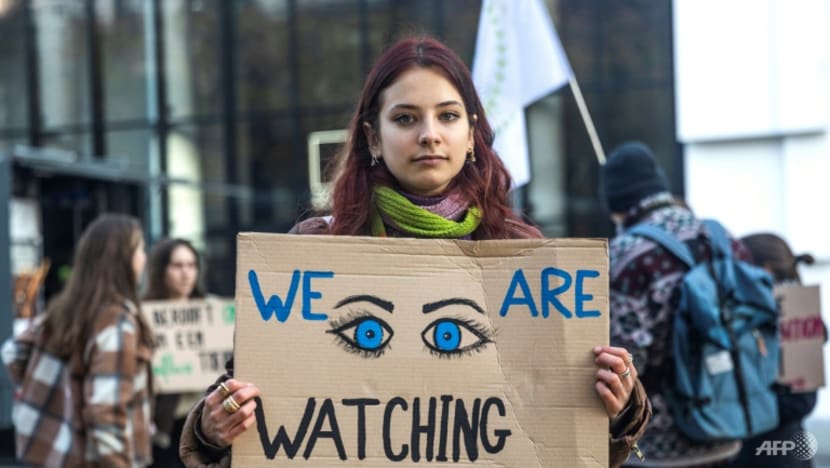

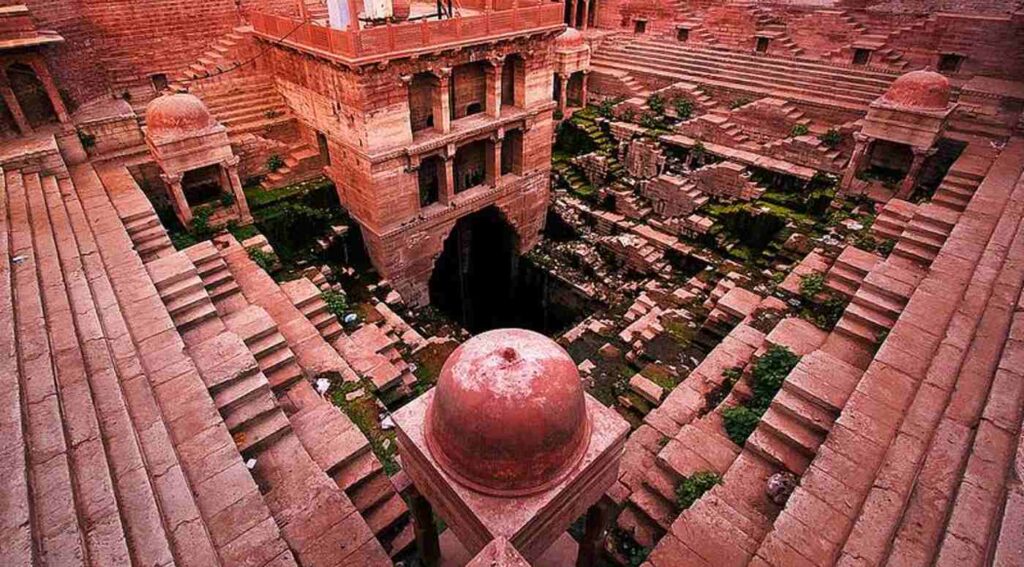 SaraswaT VaruN/CC license
SaraswaT VaruN/CC license